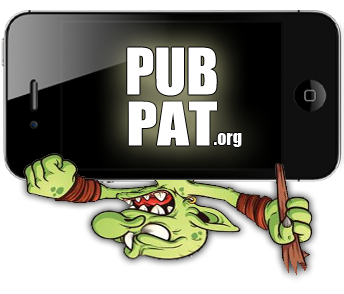Lodsys has dismissed the patent infringement lawsuit it filed against my company TMSOFT. The dismissal is with prejudice which means they can never sue my company again for infringing its patents. I did not have to pay any money to Lodsys or sign a license agreement. I also did not sign a confidentially agreement so I’m free to talk about this matter.
So what did I have to agree to?
- Never to sue Lodsys over its patents (I otherwise would have the right to ask a court to rule their patents invalid if I wanted)
- Dismiss all motions with prejudice (we had filed a motion to dismiss that also sought to recover my attorneys fees, costs and expenses)
- Make a donation to a mutually agreeable charity
I’m in the business of creating apps, so mutually agreeing not to sue each other was fine with me. Dismissing all our motions would terminate this lawsuit which is what I wanted as long as I didn’t pay Lodsys a dime and I could still talk about it. The mutual donation to charity was also fine with me especially if it was to the EFF or PubPat.org. Of course they wouldn’t agree to that, so Make-A-Wish Foundation was selected.
I was a little confused about why Lodsys wanted to make a donation to charity. I asked my lawyer if it was to make them appear more human. He said it is most likely because if we would have said no to this offer, the judge could have said we were not behaving reasonably. That seems a little ridiculous given they were the ones that filed this frivolous lawsuit. But, I get the point that Lodsys could say to the judge they were willing to dismiss it if only I’d make a small donation to a charity. This would be their way of making me look like I was the one wasting the court’s time by continuing to fight the case despite Lodsys being willing to dismiss it without me having to pay them anything.
Although this was a win for my company, it was only a win because I had Dan Ravicher and his associate from the Public Patent Foundation (pubpat.org) representing me pro bono. It is extremely rare to get this kind of assistance (I know of no one else out there offering to defend small businesses like mine pro bono from patent infringement allegations) and I am very fortunate that someone as talented as Dan agreed to fight these bullies for free. I asked Dan how much this would have cost me:
“I’ve spent about 200 hours on the matter and Sabrina about another 80. My comparable market hourly rate (partner at a top NYC patent firm) would be $750 and a comparable rate for Sabrina (senior associate at a top patent firm) would be about $500.”
The total costs to my company would have been $190,000. And that’s just for the initial response to this lawsuit. We hadn’t even gotten to court which would have increased that amount into millions. Remember that it only cost Lodsys about $450 to file the lawsuit. This is why small businesses will usually always settle. It’s just not worth it to fight. And even if you could win and get awarded your attorneys fees and costs, which are very rare, you probably won’t see a dime of that money.
This is because patent trolls are set up as shell companies without much in assets. Any money that the patent troll receives from all the licensing agreements is immediately distributed to other companies—this includes the law firm representing the patent troll on contingency and the company that originally held the patent. Any money you might be awarded will be long gone by the time it comes to collect.
Payments are also sent to the troll using overseas bank accounts. This is mainly to avoid paying US taxes, but it could also make it more difficult to follow the money if an investigation was ever brought on. The patent trolls have created an extortion business model that is virtually risk-free–Nothing to lose and everything to gain.
There is a lot of talk going on about patent reform, but most of the ideas being discussed would not help small companies. In my next article, I’ll discuss solutions to the problem and my visit to Capitol Hill where I was able to share my story to those that might be able to fix our broken system. Hopefully one day tech startups can stop worrying about patent trolls and get back to building cool stuff.
